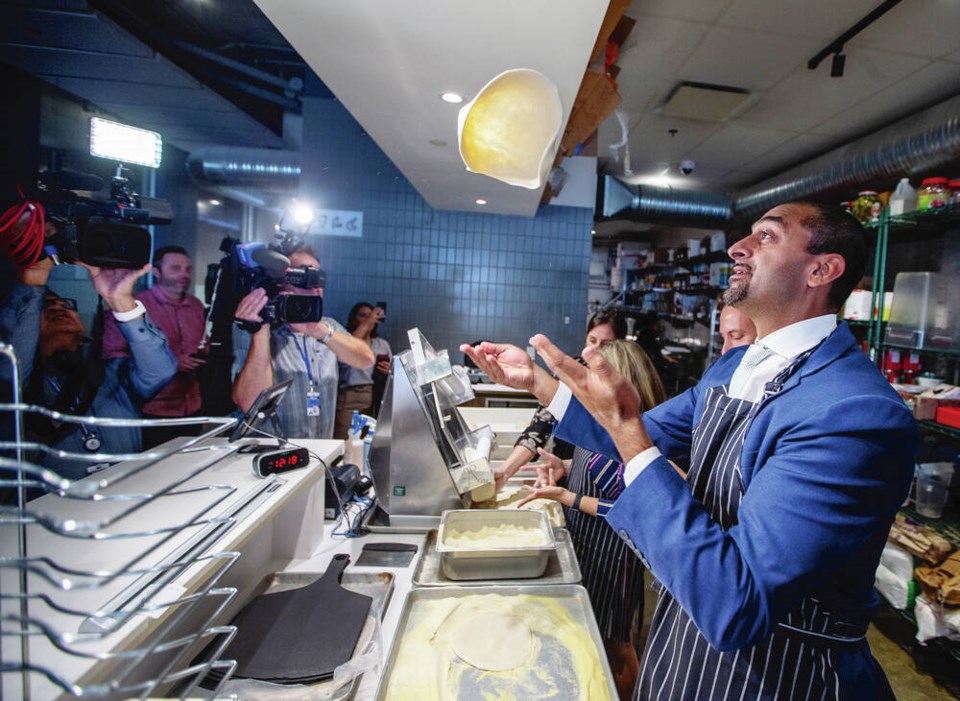The province will permanently cap food-delivery fees to help restaurants still struggling from the effects of the pandemic and now increasing inflation.
A temporary 20% cap on the fees charged to restaurants by companies such as Skip the Dishes and Uber Eats was introduced in December 2020 as eateries closed during COVID-19 restrictions and relied on takeout orders to keep operations running and staff employed.
Delivery companies were charging as much as 30%, biting into restaurants’ bottom line.
The 15% cap on food and 5% cap on additional fees, extended in September 2021 and again the following December, was set to expire at the end of this year.
On Thursday, Ravi Kahlon, minister of jobs, economic recovery and innovation, said legislation is being introduced that will limit the fees that core-services delivery companies can charge restaurants to no more than 20% of the dollar value of an order.
“As the costs of food and labour rise worldwide, sa国际传媒 restaurants need to be supported to ensure prices are affordable and that delivery companies are not charging unfair fees,” Kahlon said at Virtuous Pie in downtown Victoria.
He said the cap would provide more certainty to the sector and to delivery drivers.
Adam Walker, parliamentary secretary, is leading the development of a strategy to address the challenges facing gig workers in sa国际传媒, including food-delivery drivers.
Ian Tostenson, president and CEO of the sa国际传媒 Restaurant and Foodservices Association, called the province’s decision to permanently cap fees “a game-changer.”
“It allows for the recovery of our industry and setting restaurants up to be able to thrive in the future, he said. “On behalf of the 15,000 restaurants in this province and 200,000 workers, it means a lot.”
Kelsey McInnes, general manager of Virtuous Pie, said the cap brings “a huge sense of relief.”
“We do a lot of business through the delivery apps,” she said.”Knowing that our delivery fees will remain constant going forward will help us keep costs down for our customers.”
If passed, the legislation will add to the province’s supports for the industry, which include bars and tourism operators with liquor licences being able to purchase beer, wine and spirits at wholesale prices permanently, and the authorization of thousands of expanded service areas.
